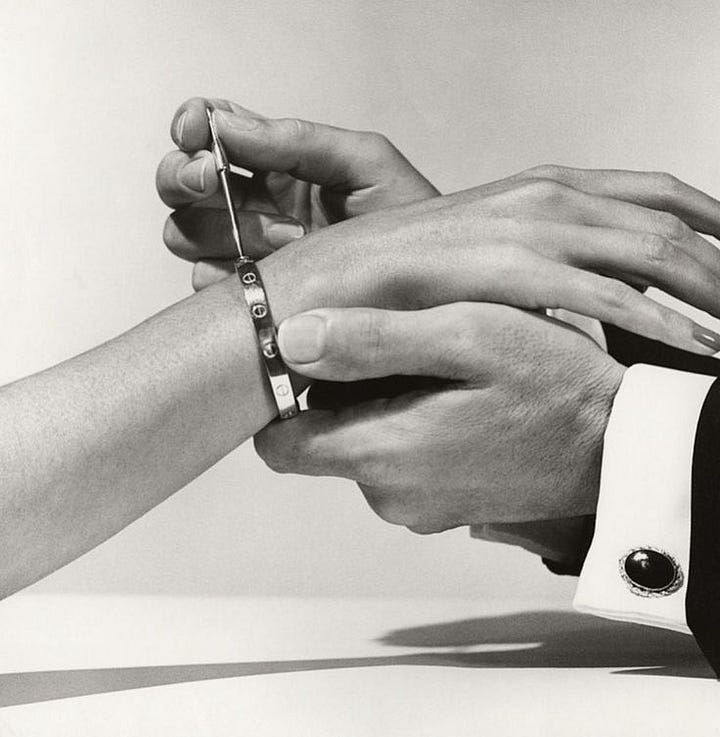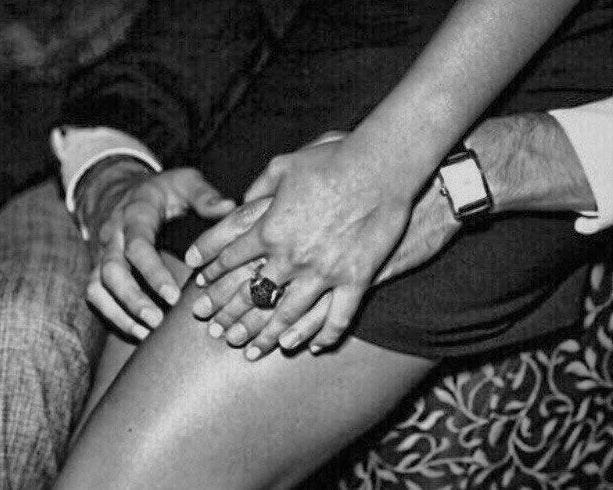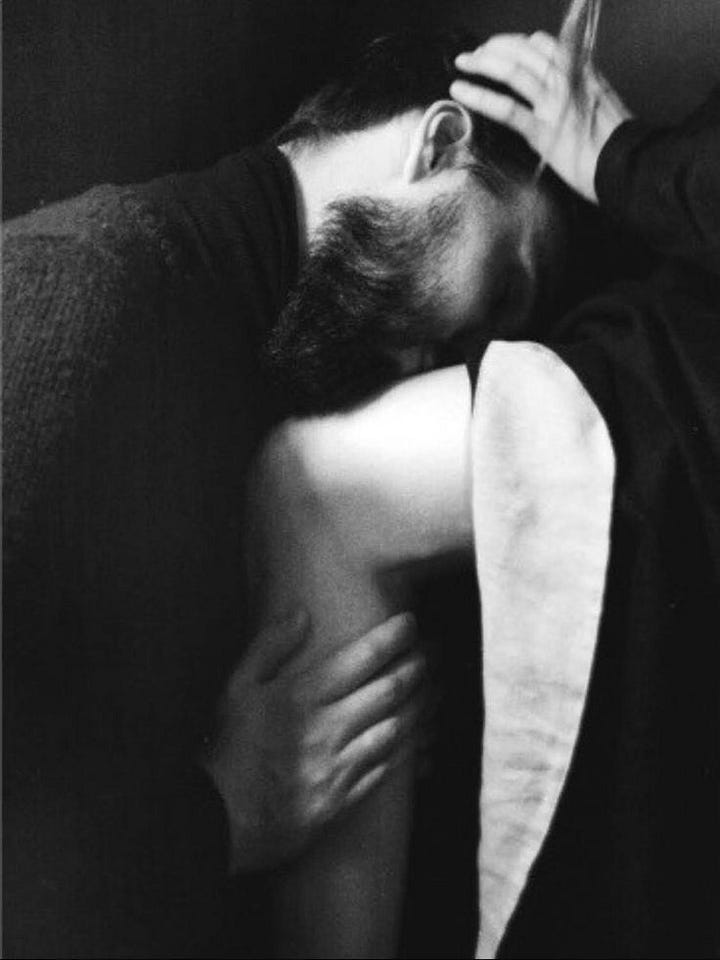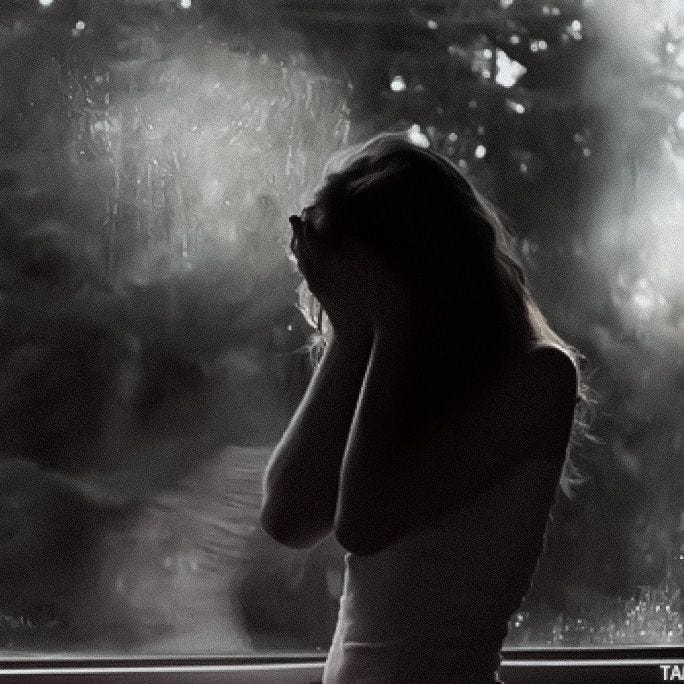The desirability of being the mistress
The Mistress Complex: Sex, Power, and Psychological Survival.


Salut…
Today’s topic is a…controversial one. A role that’s been romanticised, vilified and reimagined in media and in life. The mistress, the paramour, the hetaera. They are sexy, alluring, and so badass you cannot help but be sucked in by their succubus ways. Usually, they are portrayed to have dark features; smokey eyes, wine-stained lips, contoured cheekbones that could be used as a killing device. But besides that, they seem to have…freedom.
Appealing, right?
On a personal level, I found myself gravitating to this enticing breakaway. It seemed like the perfect gateway to rid myself of the obsessive, world-crushing anxiety that wracked my body whenever I got involved with anyone—or even thought of someone romantically. I hated how “insane” I got whenever I felt the smallest ounce of desire towards a person.
Of course now, I’ve come to realise that I was just solely dependent on these people to fill a void inside of me that I could not fill for myself, hence the self-deprecating thoughts and maddening angst.
These roles are usually illustrated as seductive recluses when, in actuality, the core of their choices is survival. Being the mistress frees the soul from the emotional entanglements (and risks) from a traditional, monogamous relationship. Psychology research conducted by John Bowlby, renowned for Attachment Theory, states that individuals with anxious-avoidant tendencies, though they gravitate towards closeness, have a deep fear of it as well. This ultimately leads to them having a “push-pull” dynamic in their relationships. Self-worth, and fear of rejection are the main driving forces behind this.
And for me, it definitely was.


Wearing the mask of seduction—beneath layers and layers of insecurity, vulnerability and avoidance of light that truly makes you feel something other than half-arsed love that comes and goes—builds complex women who have either been manipulated into this role or women who have been made to feel as though it’s all they will ever receive.
But they are women. With beating hearts, working souls and aching smiles. They deserve our empathy even if you believe they do not.
I saw myself in them—not by fame or notoriety, but through the desire to be hidden from a world of pain. To control the tears. To control who I give my heart to. But I still yearned to be someone’s entire world, unapologetically. To be the first call, not the second—or the one who should be the second.
And it is important to note; we are not monolithic individuals. Your version of love may be different from the woman next door’s. Each one of our love stories deserves to be told, even if it is morally grey. We can still see the beauty, the passion and the extraordinary—even if we would not want it for ourselves. However, I came to realise I needed that soul-crushing love in a way that felt whole, not half-full. In a way that I can be myself—be sad, hurt and vulnerable—without the shame or desire to hide away like an injured doe.
I wholeheartedly needed that. And I would not settle for something that does not truly feel like love to me.


In many ways, I feel as though the depiction of the mistress aligns with the third-wave feminist characterisation of the “modern woman”—that to be sexually liberated was to be powerful, to own your body and use it for currency if pleased. And the rising romanticisation of sex workers, such as strippers, has completely blurred the line between freedom and commodification.
Don’t get me wrong—I support sex workers. However, I am not a supporter of sex work. Too often, defenders of sex work neglect the fact that what is being sold as liberation is, in many instances, just participation in and maintaining of a system that profits off women’s souls.
Just like the role of the mistress is marketed as freedom from the chains of a traditional relationship, the sex trade is often framed as a source of empowerment when voluntary— while completely disregarding the quiet, hollow ache that follows after. And I understand why. Women are constantly told from a young age what they should say, do, and wear—so when a woman reject all of those refinements is admirable. It like seeing a trapped bird go free.
But many of these women become these societal rebels at a young, impressionable age. They make these decisions without fully taking into account the emotional baggage that comes in exchange for the short-term gratification. And I completely understand the appeal of platforms such as OnlyFans and how they offer a safer, digital stream of income compared to the dangerous, teeth-clenching in-person services. They offer a buffer between the worker and the client— an illusion of erasure because you don’t feel their hands, mouth and eyes directly on you.
But even with the screen between you, the transactions are not gone. They do not disappear like a cloud in the sky. They linger in bank statements, camera rolls—and more painfully—your mind and spirit.
So like the mistress, the sex worker is often dressed up as the one who “grabs life by the balls” and chooses to weaponize her sexuality, flip the script and reclaim the gaze. And for a while, I believed in that thought too: that choosing the hard, gritty role meant you were free & liberated.
But as writers such as Roxane Gay explored in her book, Bad Feminist, modern women constantly live with the emotional contradictions of wanting to be at liberty to oneself while still existing in a world that contributes your suffering. This can be seen in the music industry: women are pushed to be sex-goddesses because “sex sells”. They are upheld as liberated women for other women should aspire to— completely covering up the fact that when they age, their desirability decays as well. Their sex no longer sells but offends.
This double-edged sword plays out in how we remember notable mistresses. How we still love, adore and celebrate Marilyn Monroe—seen as the peak of sensuality and femininity, regardless of her alleged affair— while Camilla Parker Bowles is often vilified for lacking those same traits. Both women were defined for their entanglement with married, powerful men. And though their outcomes were tragically different, the thread that connects them is still ever present—in how their freedom was framed, and how their worth was weighed.
- noor arabelle

